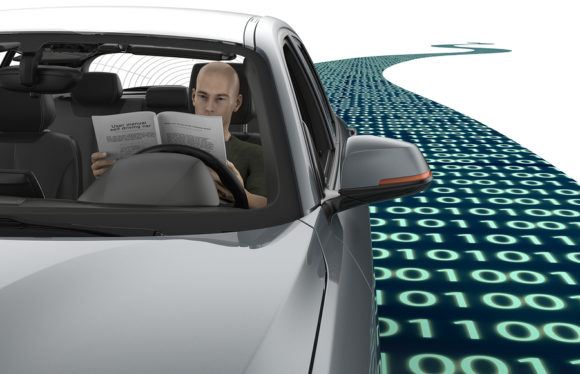Car makers and tech firms are convinced that driverless cars are the future, but they appear to be ahead of consumers in that thinking.
Only 23 percent of Americans say they are willing to ride in an autonomous car, while 28 percent say they are unwilling, according to a new survey.
The poll from media firm Morning Consult found that Americans have safety concerns about self-driving cars: 41 percent of American adults think autonomous cars are less safe than a vehicle driven by humans, while 33 percent said they are more safe. Seven percent said they are equally safe.
Age is a big factor: 41 percent of 18-29 year-olds believe autonomous cars are safer than vehicles driven by humans, while only 22 percent of those 65+ believe they are safer (49 percent of 65+ say they are less safe).
However that could change. The same poll, conducted January 12-13, 2017 among 2,200 American adults, also found some optimism about the future of autonomous vehicles. A plurality of respondents, 42 percent, said they may be willing to ride in one in the future.
Boston Consulting Group says the autonomous car vehicle business will increase to $42 billion by 2025 and account for a quarter of global sales by 2035. At the recent Consumer Electronics Show in Las Vegas, Tesla Motors Inc., BMW, Ford, Volvo and Google showed off their models and shared their visions of an autonomous future; overall there were some 138 auto-tech exhibitors seeking deals in the self-driving economy.
Other tidbits from the Morning Consult poll include:
- Should autonomous cars save the passenger or the pedestrian? Americans are conflicted over whether autonomous cars should be programmed to save passengers or pedestrians Asked to choose between the viewpoints of protecting passengers at pedestrians’ risk or prioritizing pedestrians safety over the passengers, 48 percent of people deferred to the “don’t know/no opinion” option. Eighteen (18) percent said the vehicles should be programmed to always protect the passenger, while 34 percent said they should be programmed to minimize the number of casualties, even if that means putting people inside the car at risk.
- Activities of passengers of driverless cars: Passengers should be able to talk on the phone but not much else. More than half (52 percent) of respondents said it is permissible for driverless car passengers to talk on the phone, while only 35 percent said they should text or email. Reading? That is okay with 27 percent while 26 percent approved of drinking, 24 percent said it was acceptable to watch TV or movies, and 15 percent said they are comfortable if passengers want to go to sleep.
Related:
- Driverless Cars Mapping Route from Labs to Driveways
- Who Wins, Loses In a Driverless Car Economy?
- Pittsburgh Uber Riders Preview Driverless Cars Through Test Program
- Ford CEO: Affordable Driverless Cars to Be in Showrooms in 10 Years
- Pricing Insurance for Autonomous Vehicles
- Reuters Special Report: How Google Is Winning Acceptance of Driverless Vehicles
- Driverless Cars to Slash U.S. Auto Insurance Premiums
Topics Auto
Was this article valuable?
Here are more articles you may enjoy.



 Viewpoint: Runoff Specialists Have Evolved Into Key Strategic Partners for Insurers
Viewpoint: Runoff Specialists Have Evolved Into Key Strategic Partners for Insurers  AI Claim Assistant Now Taking Auto Damage Claims Calls at Travelers
AI Claim Assistant Now Taking Auto Damage Claims Calls at Travelers  US Supreme Court Rejects Trump’s Global Tariffs
US Supreme Court Rejects Trump’s Global Tariffs  Insurify Starts App With ChatGPT to Allow Consumers to Shop for Insurance
Insurify Starts App With ChatGPT to Allow Consumers to Shop for Insurance 

